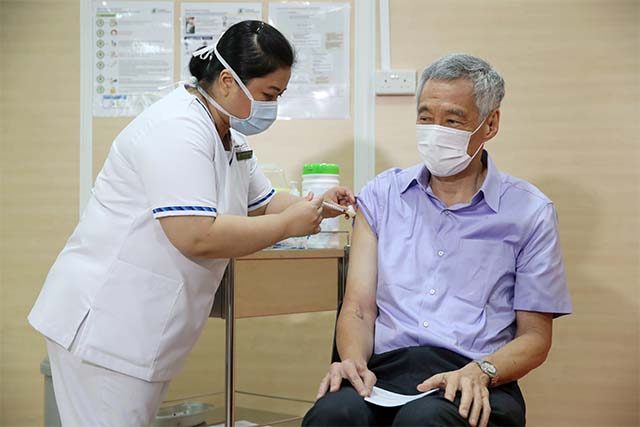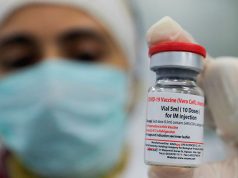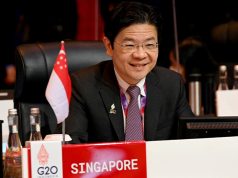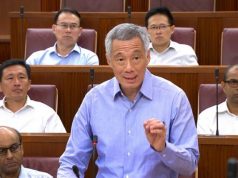
SINGAPORE — Singapore Prime Minister Lee Hsien Loong received his first shot of a COVID-19 vaccine on Friday, and urged others to take the jabs in a country that has largely brought the pandemic under control.
Unlike other mass vaccination program in the United States and Britain, Singapore is administering the jabs having largely eradicated the disease and has reported only a handful of local cases in recent months.
The government has said its studies show nearly 60% of residents are willing to be vaccinated. But the plans have stirred rare hesitancy among some due to the low risk of infection in the island nation and concern about any possible side effects from rapidly developed vaccines.
“It will make us safer, and it will make you and your loved ones safer too, so please take it when you can,” Lee, 68, said after receiving the jab at a local hospital.
Singapore has only approved Pfizer-BioNTech’s vaccine but has said it has secured enough doses for its 5.7 million population including from other vaccine-makers like Moderna and Sinovac.
The city-state did some initial vaccinations of frontline workers at the end of December. But Lee said broader vaccinations of healthcare staff would start on Friday, with the elderly to follow next month, and vaccines to be available to all residents by year end at the latest.
“We got vaccinated early to show Singaporeans we are confident that the vaccine is safe and effective,” Lee said in a Facebook post, adding that he had been vaccinated alongside the country’s top health official, Kenneth Mak, and “felt fine”.
The vaccinations are voluntary but authorities have said they will consider relaxing travel restrictions for people who have been vaccinated against the disease which has killed around 1.9 million people globally. —Reporting by John Geddie; Editing by Tom Hogue and Raju Gopalakrishnan








